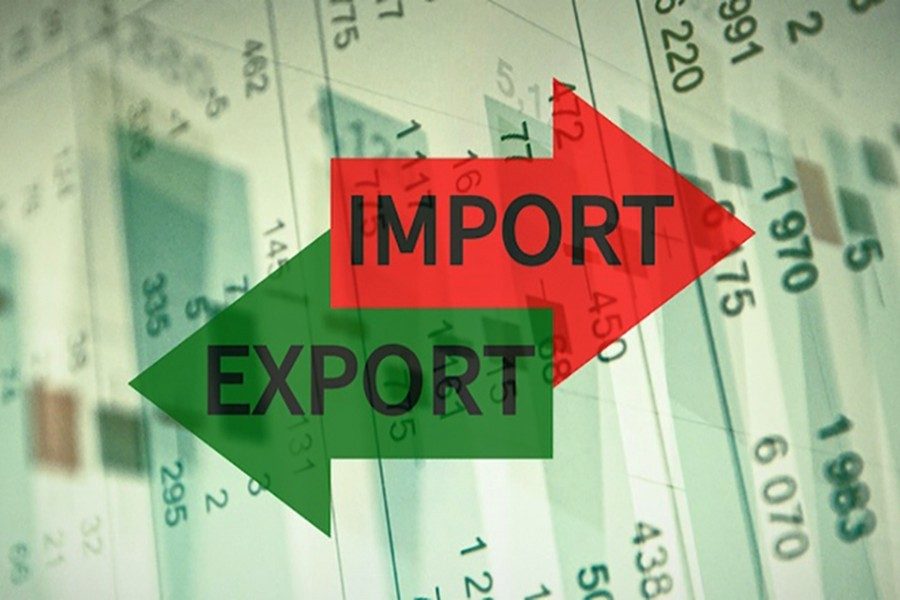In order not to deplete foreign exchange reserves in the future, import of non-essential goods is being discouraged. However, due to the dollar crisis, the import of daily necessities is also being hampered. The commerce ministry of the government fears that it will become difficult to maintain the normal supply of goods in the coming Ramadan. In such a situation, the Ministry has written several times to the Governor of Bangladesh Bank asking for the supply of dollars from the foreign currency reserve for the import of daily commodities.
Meanwhile, the businessmen also demanded the supply of sufficient foreign currency to settle the letters of credit or LC for the import of daily necessities during the fasting month. Because, despite the instruction to open LC on priority basis to keep the supply of goods normal in the upcoming Ramadan, most of the banks are unable to do so due to the dollar crisis. And the importers, disoriented to collect dollars, are protesting in various departments of the government including the Ministry of Commerce, Ministry of Finance for the LC of consumer goods.
According to the officials of the Ministry of Commerce, the importers are repeatedly staging idea at the government offices, requesting the supply of dollars for opening LCs and settlement of essential products during Ramadan. However, the central bank is not giving dollars to the foreign exchange reserves of the country. Dollars are being sold from reserves only to import fertiliser, fuel and government food.
However, at the announcement ceremony of Bangladesh Bank’s monetary policy on January 15, Governor Abdur Rauf Talukdar said that the necessary instructions have been given to open consumer goods LCs after meeting with state banks.
Bangladesh Bank Governor recently told the leaders of the Dhaka Chamber of Commerce that Bangladesh Bank is working on several policy measures including minimizing the LC margin on imports to keep the supply of daily necessities normal. The prevailing situation with LC opening will be normalized in one or two months.
Earlier on January 22, the commerce ministry had asked for special allocation of dollars for imports of edible oil, gram, lentil, onion, sugar and dates. At the same time, Bangladesh Bank has been requested to supply the necessary dollars to the scheduled banks for opening the LC for the import of these products.
The letter also said that LC opening is not possible due to dollar crisis. If this continues, there may be a shortfall in the supply of goods during Ramadan.
It should be noted that earlier on December 14 and January 10, Bangladesh Bank was requested to ensure the supply of dollars required for the import of goods. However, there is no mention of supply of dollars from reserves.
In the previous letter, it was said that it is necessary to open LCs regularly to keep the prices of daily commodities within the purchasing limit of the public during Ramadan. It is necessary to ensure the necessary supply of dollars to the banks to pay the import expenses. The central bank is specifically requested to direct private banks to conduct regular LC opening and settlement operations.
However, Bangladesh Bank sources say that the central bank is not giving dollars if it wants so that the country’s foreign exchange reserves do not fall into a dangerous situation. Dollars are being sold from reserves only for fertiliser, fuel and government food imports. In the current fiscal year, $853 million have been sold to various banks so far.
Currently, the foreign exchange reserves have come down to $32 billion. At this time last year, it was $45.20 billion.
Meanwhile, onJanuary 23, in an exchange meeting organized in the meeting room of the National Consumer Rights Protection Directorate, AHM Safikuzzaman, Director General of the Directorate said that the Directorate is regularly monitoring the market to control the prices of daily commodities. But controlling the market during Ramadan can be challenging if the import of goods is not normal.
It is to be noted that, earlier, the Ministry of Commerce wrote to Bangladesh Bank last November to supply the necessary dollars to keep the LC opening of consumer goods normal. But in the case of import of essential consumer goods, without increasing the supply of dollars, Bangladesh Bank issued a circular to take the LC margin to a minimum level based on the bank-customer relationship, which the importers and the officials of the Ministry of Commerce think are of no use.
In this situation, on January 4, the Ministry of Commerce again wrote to the Governor of the Central Bank requesting to reserve the specified amount of dollar quota from export earnings and remittances for the import of consumer goods.
According to the allocation of business, it is the responsibility of the Ministry of Commerce to ensure the normal supply of various products including edible oil, sugar, lentils, dates, chickpeas and keep market prices stable. But due to dollar crunch, LC opening, LC settlement of various products including sugar has reduced considerably compared to the same period of last year.
In this regard, the Executive Director and Spokesperson of Bangladesh Bank Mezbaul Haque said that in view of the letter from the Ministry of Commerce, necessary instructions have been given by Bangladesh Bank in November.
Meanwhile, according to the data of Bangladesh Bank, the overall LC opening decreased by 22.52 percent to $3410 million till last December. And settlement increased by 7.71 percent to $4,137 million. During this period LC of all products except petroleum has decreased. As of last December, LC of petroleum increased by 35.72 percent to $4.88 billion.
And the settlement increased by 46 percent to $536 million. However, consumer goods LCs fell by 14.41 percent to $4.02 billion. LC of industrial raw materials decreased by 27.27 percent to $1,203 million. LC of intermediate products fell by 33.18 percent to $259 million. LC of capital equipment decreased by 65.32 percent to $127 million. LCs of other products fell by 20 percent to $1,433 million.







